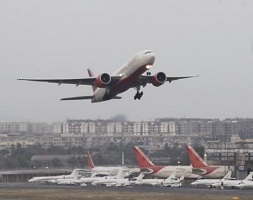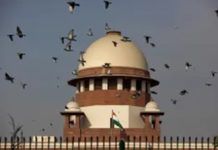Civil aviation regulator DGCA suspended 62 pilots in the last six months for safety violations, up 30% from the corresponding period last year, an RTI query has revealed. The Director General of Civil Aviation took action against 93 pilots in 2015 — an average monthly suspension rate of less than eight. This has gone up to 10 in 2016. Suspensions can last 15 days or go up to several years, depending on the severity of the offence. The regulator declined information on the break-up of violations, but sources said in 45% of the cases, pilots failed the breathalyser test that checks alcohol levels in blood. This was followed by runway violations (30%), flight and duty time limitations (20%) and miscellaneous violations (4%).
“The details of airlines cannot be provided as the information is exempt from disclosure,” the DGCA said, while a senior official added, “If we start disclosing airlines’ names, they will start hiding violations.” However, minister of state for civil aviation Dr Mahesh Sharma had told Lok Sabha in May that of 122 cases in three years of pilots failing alcohol tests pre-flight, Jet Airways, Indigo and SpiceJet topped with 33, 25 and 20 cases, respectively. Aviation experts said the DGCA was not dependent solely on airlines for reports on safety violations. It also received information from air traffic control, aerodrome operators and flight crew.
The experts believe the high suspension rate is linked to the United States Federal Aviation Administration’s move to downgrade India’s safety ranking in January 2014. “After the downgrade, the DGCA is doing its work more earnestly,” said Bhargava.
A source said, “In 2012, we acted against 109 pilots. The figure dipped to 89 in 2013 but rose to 92 and 93 in 2014 and 2015, respectively. It looks significantly high till now in 2016. It’s because we are seeking out violations more minutely.”
The source said breathalyser tests were earlier conducted randomly on 60% of crew of scheduled (regularly operated) airlines but since August 2015, all crew and non-scheduled airlines had been covered. A civil aviation ministry source, however, said the higher suspensions were due to a 20-25% jump in flight operations and stricter enforcement.








